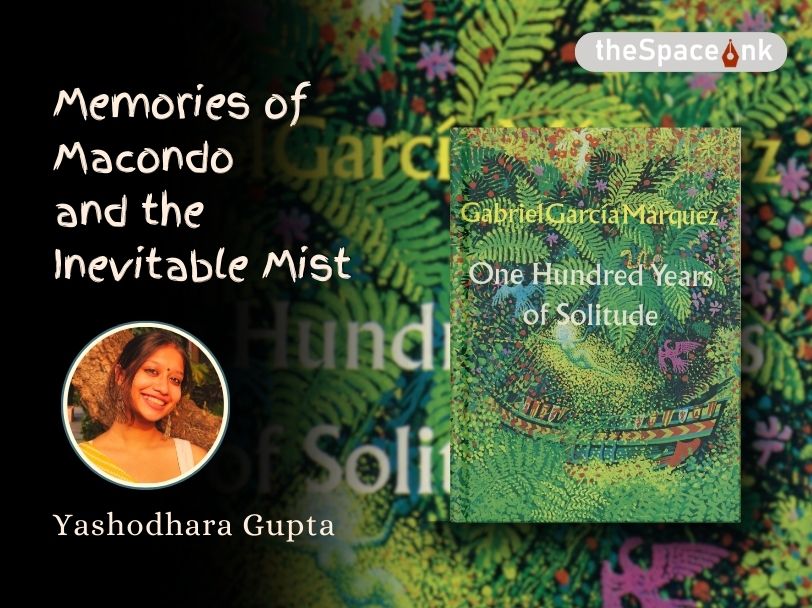Why Stories Work- The Evolutionary and Cognitive Roots of the Power of Narrative
Author: Somdev Chatterjee
Publisher: Notion Press
Price: INR 254.00
In Why Stories Work, Somdev Chatterjee takes us to the fascinating edge of evolutionary and psychological uncovering of how narrative in the form of stories influences our lives. Humans, since time immemorial, have been reliant on the power of stories, both fiction and nonfiction. Chatterjee’s intelligent way of juxtaposing essential findings in the last century and weaving them into an enjoyable read highlights his belief that humans cannot possibly survive without the manifestation of stories in everyday life.
A multi-layered approach to how stories have contributed to the evolution of humans in becoming the dominant species on the planet, Chatterjee has evoked insights from cognitive psychology and developmental psychology. The pertaining concern throughout his book remains the quest of the necessity of stories, how humans by nature have a tendency to engage in imaginary and fictive worlds, which again contributes to the unique embodied experience forming the essence of human life.
Historically, the theories of fiction have centralised their discourse on how narratives, primarily fictional stories, relate to the mental activity of the imagination, how the political and social contexts influence the creation and the reception of stories, etc. How Chatterjee’s work becomes unique in its endeavour is that he focuses on the embodied nature of storytelling through generational and cultural perimeters. One can inherit knowledge and gather knowledge through the medium of storytelling, and this medium is, more often than not, abstract, incoherent, and inexplicit. Through stories, we are not enlightened about rules on how to act, but we somehow derive a sense based on which we can act and perform. Thus, stories are a medium for expressing the inexpressible, articulating and publicising incomprehensible knowledge of experiences. This is the very reason Chatterjee emphasises on the importance of stories in human survival where instead of citing rules for dos and don’ts in a particular situation, stories lay the foundation of embodied human experiences from which it is less challenging to learn and provides scope for improvisation.
Also read: Book Review: No Return Address-Stories of Displacement and Alienation
His main credibility lies in the fact that he successfully draws our attention from stories having a distinctive aesthetic appeal to it having an evolutionary cognitive basis of human life and existence. The aesthetic appeal of stories directs to how there is an integral pleasure and pain component associated with stories. Narratives, especially fiction, give us pleasure and a sense of belonging. But Chatterjee makes a point where stories serve a greater purpose than just aesthetic pleasure. It is more fundamental, more ingrained in our everyday affairs. It is distinctive in its practical use, so much so that humans cannot but engage in storytelling. Stories tend to create group identities and intra-group cohesion through a shared imagined reality. The values of groups are embedded in the stories and preserved through generations making the values stronger. Moreover, the narrative structure of stories is also an important aspect of social interaction, empathising, and emotional expressions. When we are engaged in an interpersonal understanding in a society, we form knowledge in a narrative structure. This is similar to other kinds of knowledge as well. The fact that we consider some knowledge important among others is also based on our narrative context, where we are, where we want to be, what can help or hinder our journey etc. Similarly, humans have developed a sense of epistemic vigilance to resist potential manipulation by others.
His main credibility lies in the fact that he successfully draws our attention from stories having a distinctive aesthetic appeal to it having an evolutionary cognitive basis of human life and existence. The aesthetic appeal of stories directs to how there is an integral pleasure and pain component associated with stories. Narratives, especially fiction, give us pleasure and a sense of belonging. But Chatterjee makes a point where stories serve a greater purpose than just aesthetic pleasure. It is more fundamental, more ingrained in our everyday affairs.
The practical importance that stories have in our life reaches further than mere value-neutral objective truth that scientific research aims at- “stories are maps of the deepest layer of reality we can know”. Chatterjee cites some pieces of evidence from cognitive psychology that support the above claims, such as mirror neurons or supernormal stimuli. When we grab an object and see someone else grab an object, subsets of the same neurons in our brains fire. On the other hand, an exaggerated version of the stimulus, or a supernormal stimulus, exerts a stronger response from organisms. These findings provide an explanation of why the fictional world, the falsity of which we are certain, generates emotional responses almost equal to the emotional responses to actual facts and events. Hence, the narrative power of stories has the ability to help us experience life in an informed way, increasing our empathising and simulating potential.
At its depth, Why Stories Work holds an exhilarating argument. The inevitability of the narrative power of stories is revealed through the evolutionary past and our physiology. The way we experience ‘reality’ is influenced by our body, the will to survive. This experience of our reality, in turn, affects how we respond to the imaginary worlds of stories.
Why Stories Work- The Evolutionary and Cognitive Roots of the Power of Narrative is available for sale on Amazon.
Somreeta Paul is a poet and translator from India currently based in California, where she is pursuing her research in Philosophy. Her poems in English and Bengali have been previously published in Phi Magazine, Proma R Parosh, Anti-Clockwise Magazine, and other journals.








One Response
Very well written review. I am glad that Somdev’s book is getting the attention and appreciation it deserves.